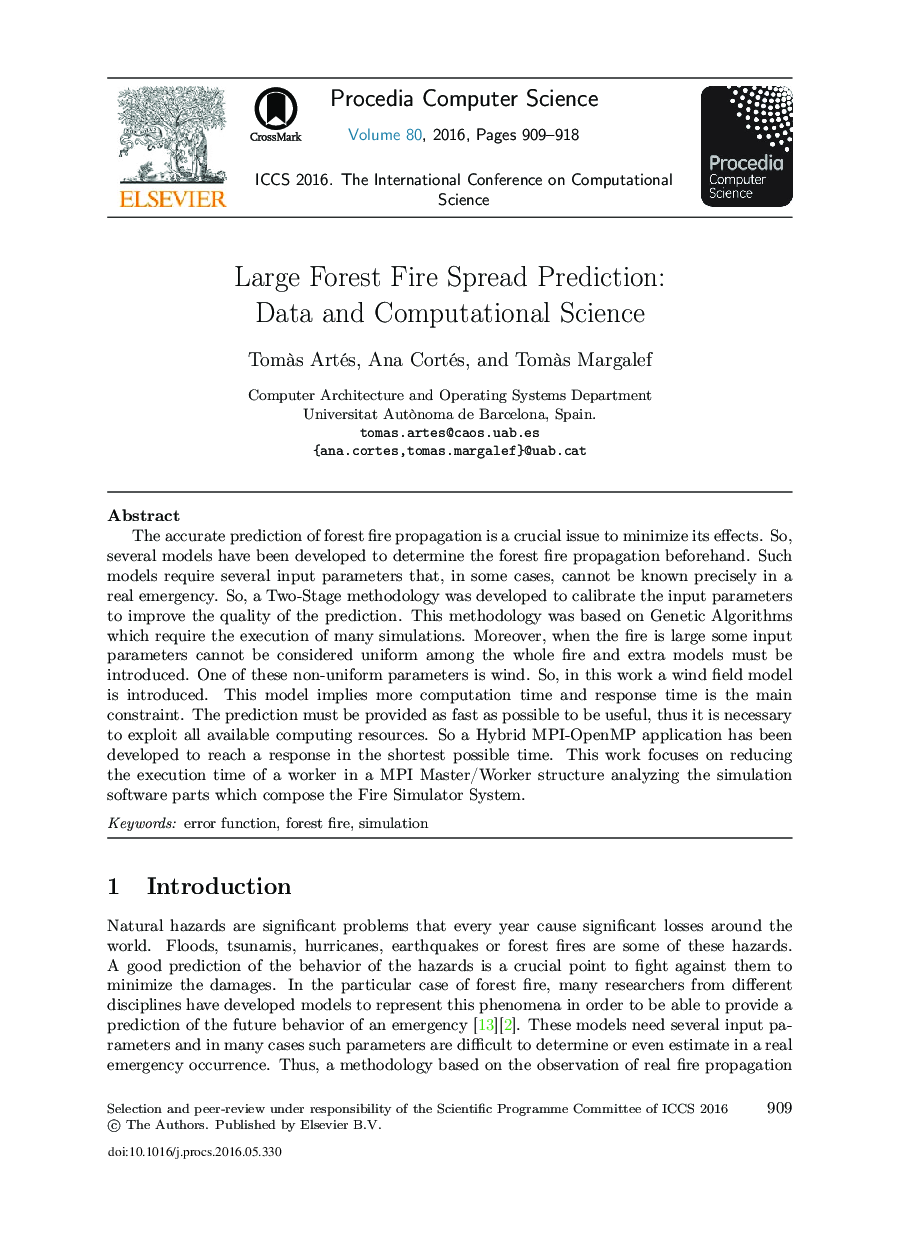| Article ID | Journal | Published Year | Pages | File Type |
|---|---|---|---|---|
| 484151 | Procedia Computer Science | 2016 | 10 Pages |
The accurate prediction of forest fire propagation is a crucial issue to minimize its effects. So, several models have been developed to determine the forest fire propagation beforehand. Such models require several input parameters that, in some cases, cannot be known precisely in a real emergency. So, a Two-Stage methodology was developed to calibrate the input parameters to improve the quality of the prediction. This methodology was based on Genetic Algorithms which require the execution of many simulations. Moreover, when the fire is large some input parameters cannot be considered uniform among the whole fire and extra models must be introduced. One of these non-uniform parameters is wind. So, in this work a wind field model is introduced. This model implies more computation time and response time is the main constraint. The prediction must be provided as fast as possible to be useful, thus it is necessary to exploit all available computing resources. So a Hybrid MPI-OpenMP application has been developed to reach a response in the shortest possible time. This work focuses on reducing the execution time of a worker in a MPI Master/Worker structure analyzing the simulation software parts which compose the Fire Simulator System.
